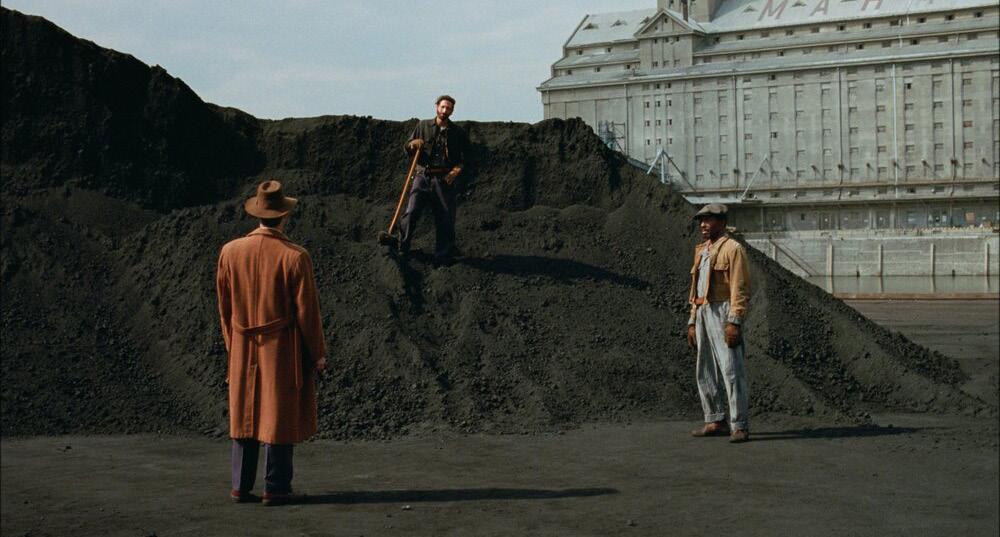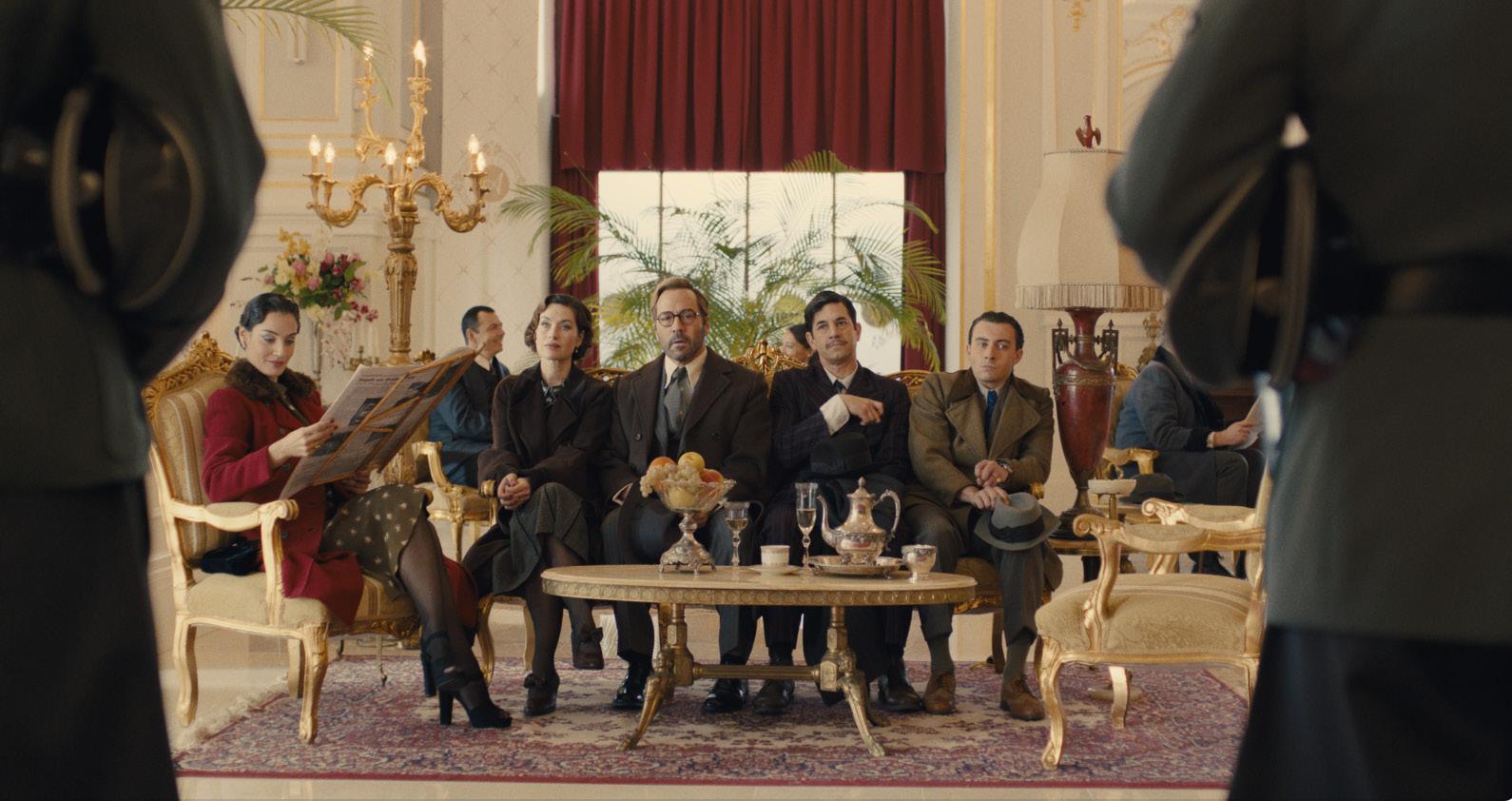





Do you find that you are functioning from an emotional state?
Have you been referred to, or identify as, a drama queen or king? This may indicate that you are highly emotional and feel, rather than think.
This can result in having a negative impact on your interpersonal relationships – personal and professional. You may find that people you interact with no longer do so. You may have been terminated from your employment.
A reason for this could be that you are seen to act in a way that is ‘over the top’. You may be seen as someone who ‘unravels’ at the ‘drop of a hat’ and that you are emotionally dysregulated. Or people may be walking on eggshells around you for fear of upsetting you. Conversely, you may also complain that other people don’t treat you well … that they don’t understand you and you are always attributing the blame to them.
Rather than feeding the heightened emotion, a therapy technique that can help is called opposite action. It is a psychological concept rooted in dialectical behaviour therapy (DBT), developed by Dr Marsha Linehan to help people manage intense emotions and

enhance interpersonal effectiveness. This technique encourages people to intentionally engage in behaviours that are contrary to their emotional impulses. By doing so, they can break the cycle of negative emotions, promote emotional regulation and improve their overall wellbeing.
At its core, opposite action is based on the premise that emotions often lead to behaviours that can exacerbate a person's feelings of distress. For instance, when someone feels anxious, they might avoid social situations that trigger their anxiety. While this avoidance may provide temporary relief, over time it often reinforces the anxiety, creating a vicious cycle.
Opposite action seeks to disrupt this cycle by encouraging individuals to act in ways that counteract their emotional urges.
The process of implementing opposite action begins with identifying one's current emotional state. This requires a high level of self-awareness and mindfulness, as the person must accurately recognise and label their emotions. Once they have identified their feelings, they can assess the urges that accompany those emotions. For example, if someone feels angry and is inclined to lash out or withdraw, opposite action would involve taking a step back to consider a more constructive response, such as expressing their feelings calmly or seeking to understand the other person's perspective.
The next step is to determine what the opposite behaviour would be. This involves asking oneself, "What would I do if I were not feeling this way?" In the case of anxiety, instead of avoiding a social gathering, a person might choose to attend and engage with others, even if it feels uncomfortable. Similarly, if someone feels sad and wants to isolate themselves, opposite action might involve reaching out to a friend or participating in an enjoyable activity.
The effectiveness of opposite action lies in its ability to create a new emotional response. By engaging in behaviours that contrast with their initial emotional impulses, the person can experience relief from their distress and gradually alter their emotional landscape. This shift can lead to a greater sense of control over one’s feelings and reactions, fostering resilience and emotional stability.
competitor, briefly
Son of Judah, in Genesis
Creature seen in "Rings of Power"
Using one to cut challah is probably a bit much
"Star Trek II: The ___ of Khan"
Mail submission accompaniment, briefly
Righteous sister in Numbers
Option for 7
What many do spiritually when spending time in Israel 52. 40-Across to 37-Across dir.
Son of Abraham
Moreover, opposite action also serves as a powerful tool for enhancing interpersonal relationships. When individuals choose to act contrary to their immediate emotional reaction, they often communicate more effectively and compassionately with others. This not only aids in resolving conflicts, but also strengthens connections, as it encourages understanding and empathy.
It’s important to note that opposite action does not mean suppressing or ignoring one’s emotions. Instead, it involves acknowledging emotions and choosing to respond differently than one might instinctively feel inclined to do. This approach aligns well with the principles of mindfulness, as it encourages living in the present and making conscious choices rather than reacting impulsively. So it is that opposite action is a valuable strategy for emotional regulation that empowers people to break free from harmful emotional cycles. By encouraging behaviours that counteract negative emotional urges, it allows for healthier coping mechanisms, improved relationships and a deeper understanding of oneself.
If this has resonated with you, I encourage you to incorporate opposite action into your life, so that you may discover a newfound capacity for emotional resilience and fulfillment.
Anne-Marie Elias is a psychologist in clinical practice for 25 years.
Measure for sales, search, or at bats
Pertaining to eight
5. Some Kosher wines
6. Unoriginal comedian
7. Urban cat's home, maybe
8. Heritage
9. Declare "That never happened"
10. "Do-well" start
11. Written collection associated with Rabbi Yehuda HaNasi
12. Gorilla, for one
13. Move while filming
22. Major heart valve
24. Already dined
27. Already dined
28. Org. of pucks and Ducks
31. Deborah led the Jewish people into one against Sisera
32. Arachnid's network
35. Canaan now, for short
36. '40s jazz style
37. Eye features
38. 1 billion years, in astronomy
39. Common kosher bird
40. "Macbeth" cauldron stirrer
41. Item lent to Antony
42. Used the grill
44. Major (Israeli) Marvel producer
45. "New York, New York" singer
46. Busy locale on Friday in many a Jewish home
49. Former popular Israeli TV show set in the "Gnoth" school
52. Big hit
53. Hindu clergy member
54. "If I ___ Rich Man"
56. Tevye addressing the audience, e.g.
58. Managed care orgs.
59. She married a son of 60-Across
61. Holder of kernels
62. Impress, and then some
Climate change and sustainability are issues that need to be considered and managed not just by today’s adults, but by future generations.
So it is that The King David School has turned to these real-world issues among its student cohort.
With the growing global population, how do we reduce our carbon footprint
and design our cities with sustainability in mind?
Year 7 students tackled the problems in a project-based humanities project. They designed and built models of future cities, incorporating zero-emission solutions across four key sectors: energy, transport, housing and infrastructure, and agriculture.
Their families were then invited to inspect the output of their creativity at a special Expo, which showcased the students’ handiwork and innovation.

It's hard to believe that it has now been well over a year since October 7. Over a year of unabating shock and sorrow, of tears and disdain, of prayers and rallies, of support and connection. In the aftermath of October 7, with the generous support of UIA donors, more than 10,000 immediate grants were distributed to those that needed them most, through the Fund for Victims of Terror. It is a testament to the enduring spirit of Am Yisrael.
So it was that over a year ago, the community stood shoulder to shoulder and committed to stand by the People of Israel in this collective time of crisis. Now, the time has come to make good on this promise.
Long-term resilience grants are essential as the next step in the recovery process of those most affected. These grants, of up to $10,000 per person, will provide individualised support to address PTSD, psychological care, job retraining and more. Victims receive guidance and support over a period of up to three years. In the case of children, they are also eligible to attend respite camps during this period.
A simple and meaningful way to contribute to these grants is through





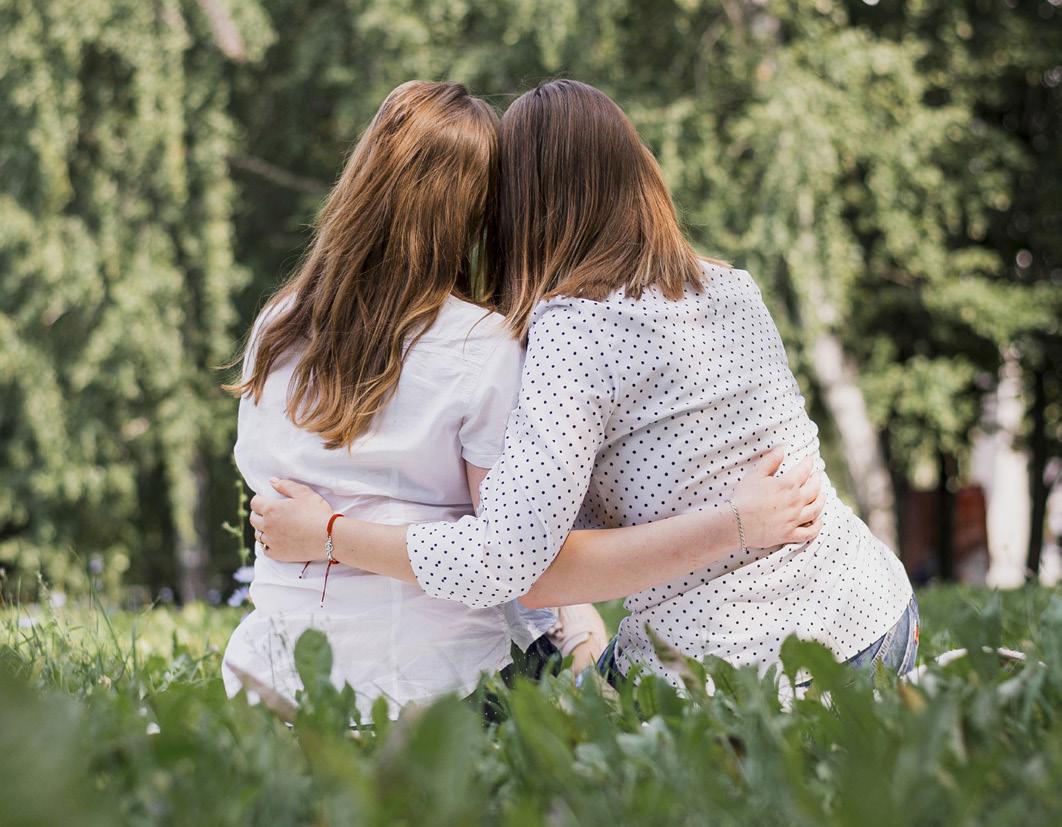
the UIA Simcha Fundraising page. Due to the overwhelming generosity and commitment of the local community to the People of Israel, UIA has set up a dedicated, online page, which makes it straight forward for guests, friends and family to make donations in lieu of gifts. Supporters can join hundreds of other community members that have made their simchas even more meaningful by sharing it with our brothers and sisters in Israel.
“UIA is proactively finding ways for our community to connect with and support all those affected, and bring light to the People Israel in these very dark times. We encourage the community to use this page to help us take the next steps in the recovery process of our brothers and sisters in Israel,” said UIA CEO Yair Miller OAM.
To donate or set up a fundraising page, go to uiaaustralia.org.au
DR TZACHI FRIED, PH.D. COURTESY: AISH.COM
In the aftermath of a stunning American election, Americans are either breathing a sigh of relief or experiencing anxiety surrounding the future of the country.
The president may have been elected but with so much distrust and distance within society, no president can truly be considered "of the people". This sense of division resonates beyond America, reverberating in democracies worldwide as conflicting ideologies seem poised to tear cultures apart.
Here in Israel, the Jewish people's focus on survival since 1948 has forced us to largely set aside our internal differences. But as we've prospered in recent years, our differences have re-emerged with new intensity. The extremes seem to be moving in opposite directions at light speed, with no leadership able or willing to bring us together.
Here is an unpopular opinion: I believe we truly need one another in order for our country to thrive. A strong Israeli right-wing maintains an unwavering commitment to the Jewish national consciousness and asserting our inherent belongingness to this land. A strong left-wing maintains our striving to be part of the family of nations, striving for economic prosperity, movement toward modernity and maintaining a vision of peace. A strong Haredi sector anchors Israeli society to traditional Jewish observance and maintains a culture of communal support and giving. A strong religious-Zionist sector maintains the bridge between right and left, religious and secular. And without a strong Arab sector with full equality, we cannot truly consider ourselves a tolerant society fulfilling our responsibility to be a light unto the nations.
Some of us reading the above may bristle with discomfort for one reason or another. Some may simply agree or disagree. Either way, I believe it’s time to start considering the positive roles we can play for one another and how we can come together, especially considering recent polls suggesting that Israelis see the nation’s internal divisions as the greatest existential threat we face, greater than Hamas, Hezbollah, Iran and the Houthis.
Anyone remotely familiar with Jewish history knows we have defeated external enemies before, but internal divisions are another story. In exile there is enough space for us to live separately and in the absence of self-determination there is less of a need to be unified. Living in our own country is a different story; we have only recently begun to recover from the 1,900-year exile that resulted from our internal divisions.
Our national story testifies to the fragility of unity. We held it together as freed slaves in the desert, only to fracture into tribalism upon arrival in the land. We united under King Saul only to fracture again three generations later, after the death of Solomon. We united again upon our return to the land and splintered into various sects and factions later. In 1948, we unified again as a broken and shattered remnant to ensure our survival, but as we slowly prospered in the ensuing decades, we are once again witness to the re-emergence of our division. This is a very old problem; either we face the fissures of disunity head-on and resolve it now or we will be consumed by it.

How do we heal society from a wound so deep and fundamental? How do we take the unprecedented steps to create a lasting framework for internal cohesion?
We have no leader wise enough to know the answer and charismatic enough to lead us all to it. I certainly do not have any answers, yet I’d like to humbly offer four ideas as food for thought. I’ve spent some years as a psychologist helping people heal relationships and bridge gaps. Perhaps some of these principles can be helpfully applied to us all as a society:
1. Every set of beliefs is understandable. At first glance, this sounds simple, but in practice we rarely approach opposing beliefs this way. Instead, when we encounter an opposing opinion, we’re likely to look at it through the lens of our own experiences, assumptions and values. We are generally blind to the legitimacy of other perspectives and quickly dismiss them.
But there is a reason why we develop the beliefs we hold, while others hold different beliefs: all beliefs are based on our own individual experiences, learning and values. When we can allow ourselves the time to understand why the world looks different through the lens of someone else’s experience, we are able to decrease antagonism and increase empathy.
To be sure, people are often afraid that expressing understanding of the other side will be seen as agreeing with the other side. This is a mistake. We must understand other perspectives without letting go of our own values. Once we recognise this, we can move to the next step: identifying the fears that underpin them.
2. Identify the fear
Encountering an opposing value system can elicit strong reactions based on deep, existential fears. For example, someone on the Israeli political right may fear that those on the left will make decisions that weaken the national ethos. Meanwhile, those on the Israeli left may fear that right-wing policies will
change the national culture in a way that violates their values. Both sides might fear that the policies of the other will endanger lives. Haredim might worry that their way of life and values will be eroded.
Unaddressed fears lead to assumptions and misunderstandings, which can devolve into disgust and hate, deepening rifts that make reconciliation seem impossible. But when we actively seek to understand where each side’s fears come from, the bridge to empathy and unity begins to build itself.
That said, it is all too easy to be dismissive of the other side’s fear; we may see it as invalid or unrealistic. Nevertheless, creating unity means that it is important to try to be mindful and to understand why our position might elicit such strong reactions from others.
3. Living together isn’t easy
We won’t always agree and that’s okay. Unity is not about agreeing, it’s about how we manage to live together when we disagree. This is where compromise becomes critical to survival. True unity requires the painful acceptance that no one gets everything they want. In any relationship where unity is critical – whether in a marriage, a parent-child dynamic, or a sibling relationship – compromise is essential. The same holds true for society. The real work begins when it requires us to give up something we want for the greater good.
For one side to make feel-good statements about unity while unilaterally making decisions is just the tyranny of the majority. And for one side to completely sacrifice its values for the sake of staying together is unrealistic and ineffective. All sides need to hold onto their values, balancing them with sometimes letting go in the name of the value of unity. We must respect the values of the other, values we do not necessarily agree with, if we want others to respect our values.
4. Nothing changes unless you change. Building a more unified society isn’t work to be done by “them” or by anyone other than our individual selves,
within our own experience and our own social circle. Each of us needs to be able and willing to change the way we think and speak, in order to create lasting societal change. Specifically, we need to refrain from speaking about other groups in ways that are disparaging, judgmental and demeaning. Even small changes in how we communicate and approach one another can ripple outward, affecting the people we interact with daily and creating broader social impact over time.
That said, there are two major obstacles to the above. One is seeing our individual selves as insignificant in the larger picture. This is inaccurate. Every individual is significant. If you have friends, family, acquaintances or co-workers, you have some degree of influence.
The other obstacle is only being willing to change if “the other side” changes. This perspective can often come from not wanting to be a “frier” – a sucker – and it is a mistake. We each need to take responsibility for ourselves and only ourselves.The Jewish nation has already accomplished the extraordinary. We’ve rebuilt the Jewish state from ashes and returned our nation from exile. We’ve revived an ancient language to daily use, brought life to a desert and defended a thin strip of land in several multi-front wars. But true unity is more than shared pride in survival. It’s a daily commitment to understanding one another, even when it’s uncomfortable, to compromise in the name of something greater and to find a shared vision to carry forward. A similar sentiment can be said for the people of America.
Unity doesn’t mean erasing our differences. It’s about recognising the strength we gain from one another and making the choice, day by day, to respect one another’s values. Seen as the ‘canary in the coal mine’, Israel often signals potential challenges to the world. Perhaps we can lead by example and inspire others to do the same, as we heal our divisions. Our future depends on us, together, beginning with the changes we are willing to make within ourselves.
DR PHILIP BLISS OAM PAST PRESIDENT PJV CHAIR BET OLAM AROUND
At this time of year, as we begin the cycle of weekly Torah readings, we see the beginning of creation, night and day, land and sea, fish and animals, and finally man and woman.
In Genesis 2:15, we read: “we are stewards of the Earth and we have responsibility to care for it. The Lord God took the man and put him in the garden of Eden to work it and take care of it.”
The truth, however, is sadly very different, especially over the last century when farming practices became intense and strong chemicals have been used to increase production. Trees have been cut down in their millions to make room for vast acreages of wheat, barley and oats. In the process, hundreds of thousands of animals and insect species have become extinct. Treeless paddocks have seen valuable topsoil blown away, as soil is repeatedly ploughed. Competing grasses and weeds have been destroyed by chemicals that not only kill the weeds but vital microorganisms, fungi and much of the soil life that is critical for healthy support of plants and wildlife.

This has led to a vicious and hugely expensive cycle requiring more chemical fertilisers, weed and pest killers and the need to expand paddocks as the soil becomes more lifeless.
Fortunately, there has also been a minor revolution in horticulture and farming generally, when a more ‘natural’ approach has been taken, with exciting and somewhat surprising results. Over the past 20 to 30 years

‘regenerative farming’ has been shown to not only increase production, but hugely reduce the costs of expensive fertilisers. By following a much more natural, conservative approach, seeds are planted through the undisturbed grassy top soil and nature’s litter and mulch is left to feed the vital organism within the soil. Gradually, health is restored to the soil, which creates a much richer environment for food production that
increases remarkably. Without the poisonous chemicals around, the soil becomes alive with microorganisms, thus sustaining growth. Wildlife increases as its food cycle is restored.
There are now many farms and orchards that subscribe to the principles of ‘regenerative farming’, where composting, mulching and a more natural approach to food production has increased production without the risk of toxic chemicals getting caught within the food chain.
Interestingly, when trees are planted to act as wind breaks and to provide shade in certain areas, crop production also increases.
Reestablishing these ‘bio-links’ with interconnecting groups of bushes and trees enables wildlife to move freely from one area to the next. Insects including bees, increase in number, helping to sustain the cycle of life through pollination.
When the Torah instructs us to take care of the land it is difficult to imagine that the idea of ‘forever’ chemicals were ever thought of. A more natural approach to food production and to repairing the world (tikkun olam) facilitates a way forward, so again we can create God’s paradise in the Garden of Eden.



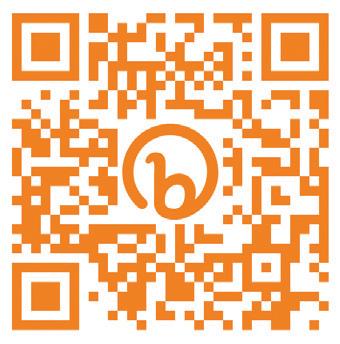

RAMONA FREEDMAN KESHER COMMUNICATIONS
It is an honour to contribute this column each month from our holy land, yet the truth is that the content is so readily available it feels as if this feature often writes itself. Somehow there is always drama – capital D.
Day-to-day life in Israel is a constant confluence of the mundane and meaningful. One afternoon I popped into the local ice cream shop and wanted to restock our freezer (yes, I now know the word ‘freezer’ in Hebrew).
I placed an assortment of fabulous options into my basket and wanted a particular pareve product as I hadn’t seen it in weeks, so I enquired about the said frozen confectionary.
The check-out guy, who himself had recently made Aliyah from Azerbaijan, advised me that due to the war escalation in the north and given the factory was situated in a now-perilous region, no more ‘Nishnushim’ would be coming in for the foreseeable future.
Understood, not important at all, I quickly replied, as I spotted and then carefully placed a box of Krembo in my basket. Krembo is the beloved Israeli cookie-based marshmallow treat enveloped in chocolate. Impressively, more than 50 million are consumed each year. Soon after, I heard that there may be war-related shortages of this too.
But this is not a tale about Ramonaand-her-rations, especially when just before Rosh Hashanah, my dear septuagenarian Israeli war-I’ve-seen-itall-before neighbour delivered a homemade honey cake, based on a recipe he has been using for the past 48 years! One people, one heart.
The festive season here with the dynamic Kehillat Lev Ra’anana community was powerful and purposeful. It was my first time to experience it all in Israel and I was so grateful for my new, unique community and connection. It is an extra special privilege to listen to our globally respected spiritual leader, Rabbi Elyada Goldwicht.
I have heard Birkat Kohanim, the Priestly blessing, more in the past four months than in the whole of the rest of my life. It has been explored in myriad ways and I remembered it had once been described to me as a ‘divine hug’. I saw this in action, if you will. Every time it was recited, I couldn’t quite work out why so many family members in synagogues joined together for a beautiful beyachad moment, hugging each other.
To my right was a recently arrived lovely lady from London. I whispered, “Ever do anything like this during Birkat Kohanim in Edgware?” Her reply: “nope, never.” I had half a mind to reach out and hug her … just to join in with this tactile tradition.
This was magnified soon after when I was amidst the throngs of tens of thousands who descended upon the Kotel during Sukkot to receive the Priestly blessing en masse. The profundity of that humbling yet huge experience is hard to describe in words. During the holiday period, I went to another exercise class

in a futile attempt to balance admittedly minimal movement against what I was consuming daily. The teacher asked us to open our yoga mats. So far so good, I thought. The next instruction was: “now ladies, fold one side of your mat over just like a rogolach”.
Seriously, exercise is hard enough without suddenly thinking about these sweet mini crescent-rolled pastries. But when I thought of rogolach and then folded one half of my mat as per her request, I saw what she meant. Still, surely it should be the one hour when fabulous food isn’t discussed!
With ‘the situation’ continuing, I haven’t ventured too far from home and, as yet, have not purchased any Judaica artwork (note to self: buy something captivating immediately post-war). In the meantime, the one item I did buy was a giant, laminated map of Israel from a local Steimatzky bookstore. It is affixed near my front door by amazing Aussie Blu Tack (the difference between this and the less-than-average local Israeli version is astonishing).
My home is very open. Lots of young people often sleep here and eat with our family. I can’t even tell you the number of times we have all poured over that map, with its many listed Hebrew names – a small visual way to help us understand what is going on and where.
When it comes to the roads I have made another observation. Intriguingly, despite their reputation, it seems Israeli drivers are hypervigilant about stopping for pedestrians. This is, of course, notably helpful if you are, in fact, a pedestrian. But should that same person then sit behind the wheel, no such grace is
given to fellow drivers. It is every-personfor-themselves out there, especially with the weaving and winding on some hellish highways. But when I need to cross the road while walking to Ulpan each morning, drivers stop for me as if I am royalty. The schoolgirl in me is not complaining.
Whether you are French, Anglo, Russian or, well, another Azerbaijani, there is a distinct generational divide. It is not Israel-specific. With our Great Southern Land being so multicultural, we can relate. It is simply this: as soon as the younger children are enmeshed in the local school system, they learn and communicate with peers in Hebrew.
Parents speak whenever they can in their mother tongue (old habits die hard and all that). And so, at the generous KLR shul kiddish for example, you have young, strong off-duty soldiers with large guns slung across their white linen shabbat shirts often casually chatting amongst themselves in Hebrew. And there is something so effortless and admirable about it all. It is our future in real-time.
When it comes to Israelis, they may not roll out all initial plans in the most logical way. Take what happened at Ulpan. For this I must circle-back to ice cream again, this time to the famous Golda –the largest Israeli ice cream franchise chain.
Apparently, there is one week each year on the country’s calendar when new olim, (immigrants), are celebrated. Despite arriving quite recently, no one had mentioned to me or my peers at Ulpan that this was ‘a thing’. So, one morning during our recess (yes, we are
kids again), we were surprised to hear music blaring and see a complimentary Golda ice cream cart in the foyer, replete with tubs of delicious flavours and toppings. Yum!
Now, if I know one thing, I know which kosher foods are designated for which festivals. And that delightful “event” happened to be held on a day in November, several lunar months away from Shavuot, when we all dive into our dairy delights. This was not a treat week … and yet, that didn’t stop hundreds from lining up. Only once we were back, seated in class were we told why the ice cream party was held.
Don’t get me wrong, it was as easy as echad, shtayim, shalosh to celebrate – it was just nice to know why the celebration was what it was. So, think about this: here we have hundreds of recently arrived immigrants from all over the world, a large percentage of whom actually live in the leafy, State-provided accommodation on-site, undertaking a government-sponsored Hebrew language course for free. Without doubt, this is a guaranteed drain on precious Israeli resources and yet we are being thanked with an impromptu ice cream party just for being here. It is kind of crazy but kind of cool too – a metaphor for the State of Israel in the truest sense.
Am Yisrael Chai from Ramona in Ra’anana.
Ramona Freedman contributes a monthly column about her recent Aliyah journey. To contact Ramona directly, please email ramona@ keshercommunications.com.au
DAVID SOLOMON AUSTRALIAN FRIENDS OF TEL AVIV UNIVERSITY AROUND THE COMMUNITY
Israel has unfortunately had to become a global leader in the field of PTSD. Before the Hamas attack in 2023, approximately 6,000 IDF veterans were recognised as PTSD sufferers, with many others, both soldiers and citizens, not yet acknowledged by the authorities. Following October 7th and the ensuing multi-front war, these numbers have risen sharply. Tens of thousands of soldiers, and much larger numbers of civilians, are likely to soon be diagnosed with PTSD.
PTSD is a debilitating condition that poses a serious threat to daily functioning and mental wellbeing. With the explosion in demand for treatment, there is now a dire shortage of experienced clinicians.
World-renowned in post-trauma research, treatment and prevention,
TAU is a global hub for state-of-theart practical, theoretical and empirical knowledge in the field of post-trauma. The past 30 years have seen TAU pioneering a broad range of now internationally recognised models, techniques and technologies for diagnosing, preventing and treating the psychological effects of exposure to traumatic events. This includes neurofeedback, eye tracking and computerised threat-processing training.
The National Center for Traumatic Stress and Resilience brings together more than 100 mental health and medical researchers from across campus, who work

in close collaboration with mental health organisations across Israel and around the world, to advance the research, treatment, prevention and education of PTSD and related conditions. The Center also provides training for PTSD professionals in local and global conflict areas.
The TAU PTSD Clinic: unique in Israel supporting post-trauma treatments. The post-trauma clinic is a key part of the Centre and provides outreach to the public for PTSD treatments. On January 1st this year, TAU began operating the clinic
in collaboration with the IDF and Israel’s National Insurance Institute.
The clinic was originally scheduled to open in two years … once its permanent home had finished construction, however, the university fast-tracked the launch in a temporary location and hired upwards of 30 expert clinicians to address the dire need. Each patient receives personalised treatment, ranging from short-term interventions to longer-term therapy sessions. The clinic has already reached capacity.
The things we care about don’t stop when we do. What will be your legacy?
For a confidential conversation please contact David Solomon on 0418 465 556 or davidsolomon@aftau.org.au
Hyperbaric Oxygen Therapy: another innovation. Researchers have demonstrated that hyperbaric oxygen therapy (HBOT) improves the condition of PTSD sufferers that have not responded to psychotherapy or psychiatric medication.
Led by Professor Shai Efrati and Dr. Keren Doenyas-Barak from the Faculty of Medical and Health Sciences at Tel Aviv University and the Sagol Center for Hyperbaric Medicine, in collaboration with the Shamir Medical Center, a fouryear study was recently completed. That research included IDF veterans diagnosed with combat-associated PTSD.
It found that biological damage in the brain of people with PTSD responded positively to a special protocol of hyperbaric therapy, resulting in a decline in all clinical symptoms, alongside improved connectivity in neural networks.
Speaking about the study Dr DoenyasBarak said: “Our unique therapeutic protocol affects the biological brain “wound” associated with PTSD and effectively reduces typical symptoms such as flashbacks, hypervigilance and irritability.
The findings give new hope to millions of PTSD sufferers and their families globally.
To support TAU’s post-trauma response, please call me on 0418 465 556 or email davidsolomon@aftau.org.au
Now, more than ever, the future of our people in Israel is paramount. A bequest - a promise today for Israel’s tomorrow - is one of the most inspiring gifts you can give. Join TAU’s global family of supporters who, beyond their lifetime, have committed to ensure Israel’s future by supporting its greatest natural resourceits people. The education of future generations at TAU will have an enduring and global impact. Making a gift in your will to Tel Aviv University will ensure your legacy lives on with Israel, forever.









YOASH DVIR TECHNION AUSTRALIA AROUND THE COMMUNITY
In 1924, on a hillside in Haifa, the Technion – Israel Institute of Technology opened its doors, igniting a journey that would intertwine scientific rigour with visionary ambition. Born from the aspirations of a fledgling community, the Technion set out to train engineers and scientists that would help shape the nation of Israel. Today, as we approach its centennial, the Technion stands as a beacon of innovation and resilience, a living testament to how education can transform societies and push the boundaries of human potential.
Throughout the years, the Technion’s contributions have rippled across the world, impacting fields from medicine to computer science and clean energy. Among the Technion’s storied achievements, one of the most remarkable was the 2004 Nobel Prize in Chemistry awarded to Professors Avram Hershko and Aaron Ciechanover for their discovery of ubiquitin-mediated protein degradation. Their breakthrough has had far-reaching implications for cancer treatment, shining a light on processes that control protein breakdown in cells and opening doors to novel therapies (source: NobelPrize.org, 2004).
In the field of technology, Technion graduates were early pioneers in Israel’s emerging high-tech industry,

contributing to critical advances like the microprocessor, which has fuelled digital transformation worldwide. This legacy lives on today with innovations in AI, nanotechnology and autonomous vehicles. Technion alumni lead groundbreaking companies such as Mobileye, which has been at the forefront of self-driving car technology. However, this remarkable journey has not been without its challenges. The Technion’s story is one of resilience, forged in times of conflict, global
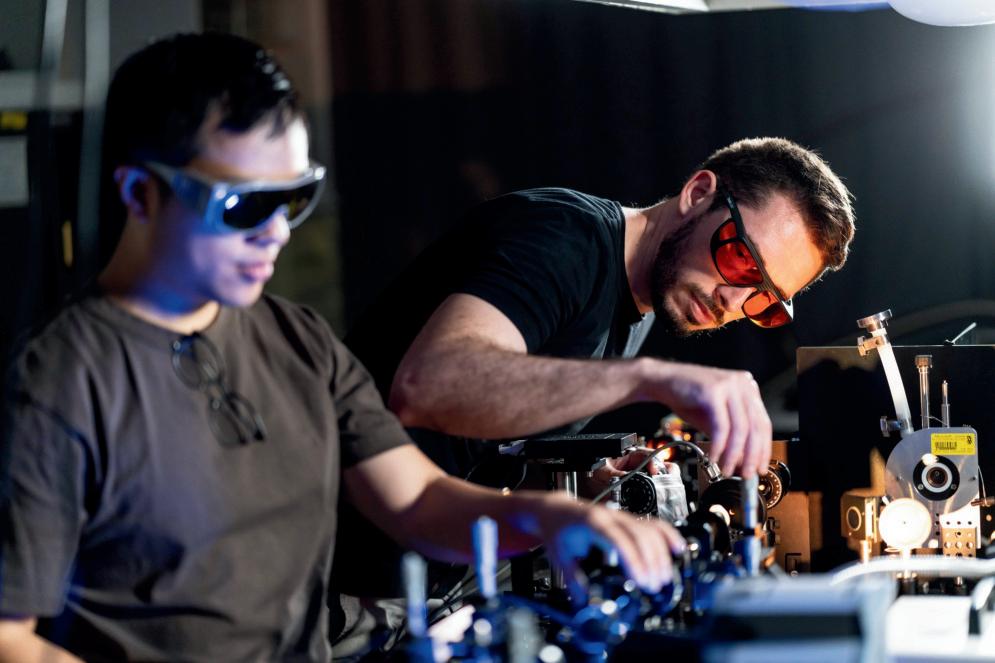
upheaval and scientific frontiers that demanded perseverance and courage. It’s a story that resonates with the spirit of so many Israelis who, while contributing to science and society, carry the weight of history and hope. This spirit is reflected in the experiences of current Technion students, including those who serve in the reserves, balancing their studies with a commitment to protecting their country.
To honour these 100 years of excellence, innovation and determination, Technion
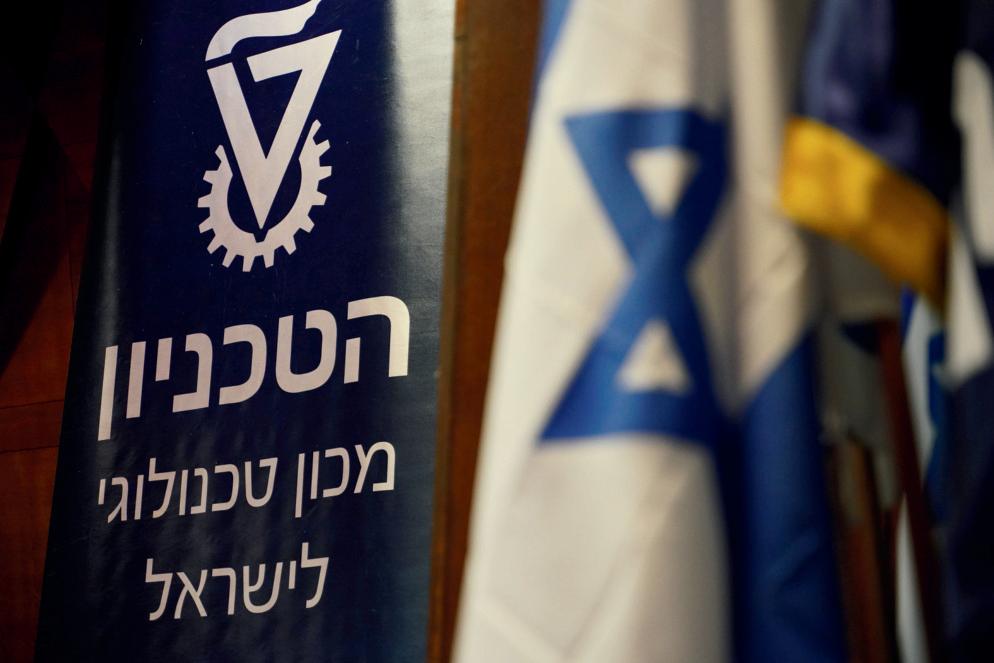
Australia warmly invites you to share two special evenings that will celebrate the past, present and future of this extraordinary institution. On December 3 in Melbourne and December 4 in Sydney (venues TBA), we will gather for an event that goes beyond commemoration –it’s a chance to connect with the spirit of the Technion and the minds shaping tomorrow. The events will feature talks by distinguished figures, including Nova Peris OAM, Mr David M. Weinberg from Misgav Institute for National Security and a Jerusalem Post contributor, Professor Wayne Kaplan, vice president at the Technion and Professor Moti Segev, a Technion graduate who has seen firsthand the intersection of education and service. Alongside these voices, an art exhibit by Melbourne-born Avraham Vofsi will offer a glimpse into the heart of Israeli culture and creativity, reminding us that science and art often go hand in hand. We invite you to share in a night of brilliance, resilience and soul. Join us in celebrating the Technion’s enduring impact and look forward to the remarkable contributions that still lie ahead.
To be part of these events, go to https:// collections.humanitix.com/technion100-years-grand-event

For 100 years, Technion – Israel Institute of Technology has strengthened the State and people of Israel. No institution holds more promise for its future.
It educates global entrepreneurs, develops pioneering technologies, expands our scientific frontiers and betters life around the world.



Earlier this month, many members of the Melbourne and Sydney Jewish communities gathered for sold-out “We Sing As One, Jointly For Israel” concerts at St Kilda Shule and Kehillat Kadimah synagogue.
The concerts not only celebrated unity, but also raised essential funds to support JDC (The Joint) and its life-saving work in Israel. The events were a resounding success, blending rich performances with a shared commitment to humanitarian support.
The lineups were headlined by Shai Abramson, chief cantor of the IDF and Brett Kaye, the national director of JDC Australia and the chazzan at St Kilda Synagogue in Melbourne.
The Sydney concert featured Kehillat Kadimah’s choir and youth choirs from Moriah College and Mount Sinai College. It also incorporated Kehillat Kadimah’s longstanding chazzan, Yehoshua Niasoff, alongside singer Hylton Chilchik.
The Melbourne concert featured the St Kilda Shule choir and the Melbourne Jewish Youth choir, conducted by Avraham Yee. It also incorporated Dov Farkas and Zalmon Simons. Renowned conductor and composer
Raymond Goldstein, along with Dr Tony Prochazka, Professor Jeffrey Rosenfeld AC OBE KStJ and Ben Adler added to the musical tapestry at both concerts.
As part of the Sydney evening, Alex Ryvchin, Co-CEO of the Executive Council of Australian Jewry, received special recognition from The Joint for his ongoing dedication to advancing Jewish causes in Australia. Eva Fischl OAM, president of The Joint Australia, presented him with the award and thanked him for his ongoing support.
The Joint extends its heartfelt thanks to everyone who attended and supported the concert, including the dedicated volunteers and performers that made the memorable evenings possible. Attendees describing the concerts as moving, noting the strong sense of connection and purpose that filled the room.
Among the concertgoers was Lynn Langman, who subsequently emailed a congratulatory note.
In it, she said she “loved the variety of beautiful voices, and of sad and upbeat songs. I also appreciated that Shai explained where some of the songs originated (and) what they had come to mean. The atmosphere was warm and uniting.”

ROBERT GREGORY
AUSTRALIAN JEWISH ASSOCIATION
As President Donald Trump begins his second term, what can the Jewish world expect from his foreign policy? With stark contrasts to the Biden Administration, Trump's return will have a major impact on Israel and the Jewish world.
Everybody has an opinion about newly re-elected US President Donald Trump. Some love his brash, no-nonsense style, while others can’t stand his unpredictability and the controversy that seems to follow him everywhere.
Whatever your thoughts on his wellknown flaws, there is no denying that he offers a very different foreign policy from the outgoing Biden Administration.
Looking at the numerous major international conflicts, it’s not hard to see why many accuse the Biden Administration of setting the world on fire.
Indeed, President Trump is inheriting a much less stable world situation than the one he handed to President Biden, just four years ago.
From the Afghanistan debacle to the wars in Ukraine, Gaza and Lebanon, the Biden term has been marked by conflict. The US seems powerless as Houthi pirates terrorise Western shipping

and the Ayatollahs in Iran are on the cusp of acquiring a nuclear weapon.
Under Trump, the world was a different place. Islamic State was dismantled.
The Abraham Accords brought peace between longtime rivals and a maximum pressure campaign against the Islamic Republic of Iran had the Ayatollahs sweating.
So, what can we expect from the second Trump term?
The first priority in the Middle East should be confronting the aggression of the Islamic Republic of Iran. The bloodsoaked hands of the Ayatollahs are behind every problem in the Middle
East. Early indications are that the Islamic Regime will face a return of the maximum pressure campaign. Crippling sanctions, with the threat of military action, are needed to prevent the Islamic Republic from acquiring a nuclear bomb.
The incoming Trump administration must repair the damage to the USIsrael relationship caused by the current administration. An early move will be undoing the Biden Administration’s outrageous betrayal of its ally, Israel, in her time of need by holding up weapons sales. It should move to quickly scrap the discriminatory sanctions that the Biden Administration has applied to individual Jews in Israel. The United States must again become a reliable ally.
Longer term, the world will benefit from a revival of the Trump peace deals that brought ties between Israel and Muslim nations like the United Arab Emirates, Morocco, Bahrain and Sudan. The major prize is a Saudi Arabia – Israel peace deal. Closer to home, we can anticipate potential deals with Muslim majority Indonesia.
A Trump Administration can be expected to once more take a hard line against international organisations like the United Nations and international court system that have been overrun with antisemitism. The US is likely to cut funding and withdraw from hostile institutions while working to undermine
the terrorist-linked UNRWA. Domestically, the Trump Administration will have to turn its attention to the antisemitism crisis that has swept the United States over the past year. University campuses have become hotbeds of Jew-hatred. The grilling which Ivy League University heads faced from Republican congressmen earlier this year is a taste of what’s to come. We can expect flow-on effects in Australia, where many of the same issues are playing out. A key test for the incoming administration will be whether it can marginalise extremist voices on the far-right, from antisemites like Candace Owens and Kanye West to Israel-critics such as Tucker Carlson.
The good news is that Trump’s record speaks for itself. His first term was the most pro-Israel of any US Administration in history. Decisive actions like recognising Israeli control over the Golan Heights and Jerusalem as Israel’s capital, while moving the US embassy there, changed the history of the Middle East. There is still unfinished business and many are hopeful for US recognition of Israeli sovereignty over Judea/Samaria.
If Trump’s second term sees him focusing more on policy than on social media outbursts, the Jewish world will benefit greatly from his approach to diplomacy.
NOMI KALTMANN COURTESY: THE JEWISH INDEPENDENT AROUND
Research shows connection with prison chaplains reduced recidivism. Jewish prison chaplains are especially busy during the season of repentance.
For most of us, the busy period from Rosh Hashanah to Simchat Torah is a time of celebration with family and friends. For Jews in jail, it can be the hardest and most lonely of times.
Their lifeline to Jewish connection is the prison chaplaincy.
“The biggest challenges Jewish prisoners have is their sense of isolation and loneliness especially around the time of chagim (festivals), where typically one would be surrounded by friends and family,” said David, a Jewish chaplain in Victoria’s prison system.
“We are caring for the people in the most vulnerable time, often when they have lost all of their family,” said Mark, another Victorian chaplain.
In the lead up to the High Holidays, I talked with Mark and David, who have both been visiting prisoners on a regular basis since 2017. They asked I withhold their last names due to the sensitive nature of their work.
Globally, visiting Jewish prisoners in jail took off in the 1980s, when the Lubavitcher Rebbe, the grand Hasidic rabbi of Chabad in New York, encouraged his followers to visit Jewish people in jail.
Unlike the legal system, which views prisoners as people deserving of punishment, the Rebbe took a radically progressive approach. He asserted that all Jews are “responsible to make sure that criminals are helped in their lives, rehabilitating them to a productive life in

a moral and just society … and ensure that prison acts not just as a punishment, but as an opportunity for positive growth.”
In Victoria and New South Wales, there are Jewish prison chaplaincies, run by Orthodox Jews who want to support those who are in jail. I’ve always been interested in the topic, because my dad, Max Kaltmann, founded Victoria’s first Jewish prison chaplaincy and served as a prison chaplain for 26 years. When he retired from the prison chaplaincy, it was taken over by a registered charity, the Jewish Prison Chaplaincy of Victoria.
Today, the Victorian Jewish chaplaincy is run mainly by volunteers (Mark and David are not paid) and has a close working relationship with Corrections Victoria, the government agency responsible for maintaining prisons in Victoria. Volunteering as a prison chaplain requires sensitivity
and discretion. Chaplains must feel comfortable visiting inmates, some of whom have committed serious crimes, such as sexual abuse or murder. All chaplains must have a current police check and specific clearance for the prison they visit.
When I asked the chaplains how they feel about visiting people who have committed serious offences, David stressed the lack of judgment required for this role. “I think about prison like Yom Kippur. Many people in jail turn to spirituality and religion and think about what they have done. I am there to provide support,” he said.
The High Holiday period is one of the busiest times of the prison chaplaincy. There are requests for Jewish books, as well as holiday-specific supplies, such as honey cakes, lulav and etrog sets, shofars etc. For women in jail, the chaplaincy provides electric shabbat candles, while
for men they can also deliver tefillin. Corrections Victoria provides kosher food for inmates that require it through a kosher caterer, but prison chaplains, with permission from the jail they are visiting, can bring in specific additional foods. David said rugelach, hummus and festival-specific foods such as hamantaschen and honey cake are popular requests.
But most of all, the chaplains provide emotional and spiritual support. “Chagim are a time of reflection, celebration and festivities. Incarcerated people are missing that interaction, the warmth and love of family unity,” said David.
There are about a dozen Jewish prison chaplains in Victoria. While all chaplains are permitted to visit either men’s or women’s jails, the Jewish chaplaincy usually sends male chaplains to the men’s jail and female chaplains to the women’s jail.
The chaplains feel a great deal of responsibility about their work, knowing that the people they visit in jail often don’t have many visitors and look forward to their visits. “I believe that every person should be looked after,” said David. “When times are not good, you want to know your friends. Our role is to help,” said Mark.
For the chaplains, the best-case scenario is when a prisoner is released from jail, successfully reintegrates into society and no longer require their services. A former inmate who was recently released from jail came to address the group of Jewish chaplains. “One of our chaplains helped to turn his life around. [The former prisoner] is now working for the government. This kind of thing makes it all worthwhile,” said Mark.



YANKEL WAJSBORT GENERAL MANAGER KOSHER AUSTRALIA
Over Rosh Hashanah, one of the world’s leading food companies and a Kosher Australia client of more than two decades advised us that they had decided to cease kosher.
No reason was provided.
As this company manufactures key food items found in the pantries of most kosher households, the decision caused a lot of inconvenience to the community. Some of the items made are unique to the company, with no other local kosher source.
The response from consumers was gratifying, as they reached out to the manufacturer to voice their concerns. Reportedly, there was a 90-minute wait on the customer help desk.
In addition, kosher consumers who had ties with the senior management of the company utilised their contacts.
The postscript to this story was positive. The company has decided to continue with kosher. At the time of writing though, we are none the wiser about why kosher was originally cancelled.
Over the past 20 years, the Kosher Australia family of companies has grown from 50 to almost 900. And while most companies have benefited from the relationship, a number have trialled kosher and decided to leave the fold.
The reasons for this vary.

• No Market Penetration: The company was unable to sell into the kosher market and thus saw no commercial benefit.
• Kosher was too complex: The company felt that it was too difficult to maintain kosher within their current operations and processes.
YANKEL WAJSBORT GENERAL MANAGER KOSHER AUSTRALIA
On a Monday morning in August, I walked into our offices and the staff noticed that I was short of breath and very pale. I also had some chest pain. Despite my protestations, Hatzalah was called as well as paramedics. Half an hour later I was in Cabrini Emergency.
What followed was a battery of tests and treatment for blocked heart arteries that allowed me to return home within three days. Thank G-d I am on the mend and adjusting to increased exercise and a diet change. (I just need to work on more sleep and less stress!)
The Kosher Australia office regularly receives calls from people who are unfortunately spending time in hospital. Many hospitals offer kosher meals from a variety of kosher caterers. Unfortunately, the presentation of these meals can be confusing, especially if the consumer is not feeling the best.
Here are some common challenges:
1. Non-kosher side dishes: Aside from the kosher meal, the hospital provides side foods such as a tub of yoghurt, a juice box or some fresh toast. While well-intentioned, these may not be kosher and
shouldn’t be consumed by those keeping kosher.
2. Incompatible extras: A number of the hospitals have sourced kosher sides e.g. fruit tubs, yoghurts, juices, cream and cookie packets. When the kosher meal supplied is meat then a dairy ‘extra’ should be avoided, even if kosher.
3. Broken seals on kosher meals: The integrity of a kosher meal
• Societal concerns: Some companies, while supportive of kosher may be concerned with negative political feedback based on the geopolitics of the day. For example, some years ago a yoghurt company which had been with kosher for 40 years decided to drop kosher because of consumer pressure to drop Halal certification. It felt that it would not be viewed favourably if kosher was retained and Halal was not. (As it so happened, they then dropped kosher for a brief period, but did not drop Halal!)
• Changes to ingredients or processes: Companies make changes and introduce non-kosher ingredients or processes that make kosher impossible.
• Certification fees: While kosher fees are minimal – less than the cost of calling out a domestic tradesman to fix a dishwasher or replace a fuse box – even this small charge may prove too much.
While we do our best to retain companies as kosher, we are not always successful. Ultimately, the main weapon in our arsenal to combat kosher attrition is the kosher consumer.
• Insufficient manpower: Many manufacturers are required to maintain a multiplicity of quality standards, ranging from environmental standards to standards required by supermarkets or the European Union. They may feel that they are unable to manage their kosher program as well as such a heavy workload.

is maintained when the food is sealed with appropriate kosher seals. If these are broken, then, from a Halachic perspective, the kosher status may be compromised. Each kosher hospital meal should come with handling instructions supplied by the kosher caterer. If the meal integrity is not intact, then the meal should be sent back.
4. Passover: During Passover, kosher patients may receive nonPassover meals. Passover meals will be clearly marked and the non-Passover meal should be returned.
Of course, if your doctor has prescribed medication, there is no concern in taking it. For those kosher consumers finding themselves in hospital, we wish you a speedy recovery.
YANKEL WAJSBORT GENERAL MANAGER KOSHER AUSTRALIA
A few weeks ago, the Kosher Australia Facebook page lit up with a question: Why is kosher meat so much more expensive than non-kosher meat?
A decade ago, a YouTube film called ‘Koshermania’ became famous in Jewish circles. It showed ex World Champion wrestler Hulk Hogan trying to organise a housewarming barbecue, after moving to a new neighbourhood in Miami.
In preparation for the party, Hogan and his wife knocked on doors and discovered that they’d bought into an area heavily populated by Orthodox Jews who kept kosher. Thus began Hogan’s (at his wife’s command) quest for the ‘kosher’ housewarming party.
Eventually, Hogan and his son arrived at Kosher World in Miami Beach and asked the yarmulke wearing attendant about the difference between kosher and non-kosher meat.
The attendant patiently explained that kosher meat is slaughtered humanely and that diseased animals are not kosher.
Hogan replied: “Kosher meat sounds much healthier – I think I’ll always buy it.”
A similar comment came up at an Austrade function I attended with

a number of Kosher Australia client companies in 2008.
In chatting about buying habits, one client, the managing director of a very popular range of breakfast cereals and mueslis, dropped what I thought was a bombshell.
“I’ve always been interested in kosher food.
We’ve even bought kosher meat for home use for the last five years.”
She then confirmed that she had shopped at Continental Kosher Butchers in Malvern since she got married.
When I pointed out that kosher meat was more expensive than non-kosher, she brushed off my objection. “So what – it’s better quality.”
Indeed, kosher meat is healthier for a number of reasons:
1. In Australia, only glatt meat is allowed. ‘Glatt’ or smooth refers
to the absence of lesions in the lungs of animals, and reflects the health of the animal that has been slaughtered. In rejecting non-glatt, kosher animals are, by definition, healthier.
2. The kashering process must start within 72 hours of being killed. This reduces the possibility of bacterial contamination.
3. Kashering involves the removal of blood, reducing another potential source of contamination.
4. Porging or treiboring means that many fats and gristle are removed, leaving a leaner cut.
5. The fact that all kosher butchers in Australia are subject to full time supervision, from the start of meat processing through to packaging and sale, limits the capacity for external shenanigans. This adds to the quality assurance of the meat. Unfortunately, each of these aspects, as well as the manual nature of shechita (the ritual slaughtering of animals) –unlike non-kosher, which is automated – are factors in increasing the cost of kosher meat.
Still, the fact that kosher meat is only at between a 10 to 15 per cent premium on like-for-like with non-kosher meat demonstrates the efforts of kosher butchers and kosher authorities to keep prices manageable.
What does a kosher auditor do? A kosher auditor visits factories to check for kosher compliance.
Why kosher?
My first time working in kosher was when I was in school and I went to the old Bonlac factory to supervise Big M milk. Apart from driving a motor bike into an electric fence, it was an incredible experience.
I find working in kosher provides me with great opportunities to see halacha (Jewish law) in action. That is, where we go into a factory and break kosher down into the actual components – what is and what isn’t affected by surrounding products and report everything back to the rabbonim.
About me: I grew up in Melbourne and married a native. After finishing school, I enrolled in biochemistry, which was an area in which I was interested. In my free time and to support my family, I was working in kosher.
I then completed my Masters in Biotechnology and Bioinformatics.

After having completed my degrees, I have worked in wine production, been a kosher supervisor at the abattoir for chickens and other animals, performed industrial visits for Kosher Australia and overseen numerous kosher production runs.
I also kasherise commercial and private kitchens, which allows me to hone my skills with industrial steamers and blow torches. I ran kosher for the Adass community for a number
of years and joined Kosher Australia almost 10 years ago. I have visited factories throughout Australia, as well as Indonesia, Malaysia, Singapore, Thailand, New Zealand, Papua New Guinea, Fiji, the Solomon Islands and Japan.
Adventures in kosher: One of my more adventurous trips was when I arrived in PNG earlier this year and there was some dispute between the airlines and the fuel supplier. The
airlines needed fuel and the fuel supplier wanted their bill paid. So, only about 20 per cent of scheduled lights were taking off. Those that were, were severely delayed.
One check-in clerk told me that in my case, the delay was two weeks, but the flight wasn’t cancelled.
I booked on the rival airline, but ended up stranded in Port Moresby.
On a Friday morning, I rocked up at the PNG international airport, ready to board my international flight to Cairns, which connected with a flight to Melbourne.
Then the delays started. 15 minutes, 30 minutes, 45 minutes and so on. We ended up landing in time to see my flight still boarding so I ran through customs and found they had closed the flight.
Air Nuigini had it all arranged – a flight that night landing at midnight so I’d be on time for Shabbos.
I had the dubious honour of explaining how Shabbat works.
What my colleagues say about me: “Who?” “I prefer when he’s not here, so I can watch the cricket on his screen.”
“The office is freezing – Adam must be here because the cooling is set to 10C in the middle of winter.”







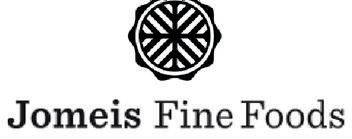

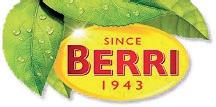
































































































































































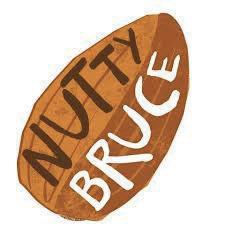

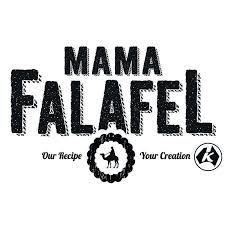












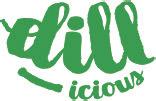
























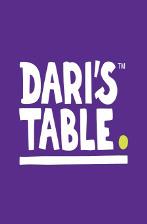























































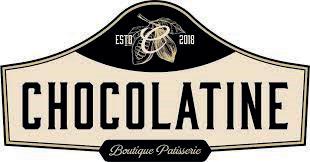










































It’s been a big month in the world! With the US election run and won, the talk of town has been the re-election of Donald Trump. But in my mind, the most symbolic of all events may have passed you by without you properly noticing. That was the 400th day since the hostages stolen from their homes and from the Nova party in Israel have been in Gaza.
It seems unfathomable for me to consider that such a long time has passed since they were taken and that we are still waiting for them to come home. The Jewish people will not be complete until all remaining hostages are returned. We are one people, with one heart and one soul. When one of our brothers or sisters is hurt, we cannot feel complete.
The road to bringing the Israeli hostages back has been long and tortuous. It has been full of promises and potential. Almost a year ago, there was the temporary pause in fighting, which allowed for more than 100 women and children to return to their homes. I still remember being metaphorically glued to my phone as the photos and videos of the family reunifications played out. It was sheer

elation and joy. To think that almost a year on, those that were not released are still suffering is unconscionable.
To think that those who were not yet released have been languishing in the tunnels of Gaza, without proper food, medical care, or access to basic services like the Red Cross is beyond cruel. To think that Jewish people, in
Ah, challah – the golden-braided, soft loaf that makes our Shabbat table feel complete. But here’s the twist: challah isn’t only about that beautiful bread we break on Friday night. In fact, the real “challah” is actually a tiny chunk of dough we separate and burn before the loaves hit the oven. Yes, you read that right. This hidden bit of dough has a story and purpose that goes back to ancient times and still resonates with us today.
Back in the days of the Brit Hamikdash, this little piece of dough was reserved for the kohanim, the priests who descended from Aaron and served in holy roles. It was their portion, a way of acknowledging that every blessing we receive isn’t solely ours. Today, instead of handing over the dough, we burn that piece as a sacred act, preserving the mitzvah with a modern twist.
And while it may seem small, separating challah is a powerful spiritual gesture. In this single act, we pause, consider our blessings and recognise that part of what we have is meant for a higher purpose.
And I tell you, burning that little piece on purpose is a lot more satisfying than accidentally burning a whole loaf!
Over time, it’s become one of those beautiful rituals often entrusted to women. While preparing the loaves, she adds something magical to her baking
the 21st century have been forced to suffer like this just because they are Jewish is despicable.
The vast majority of the remaining 101 hostages in Gaza are civilians, people like you and me that were in their homes or at a party and grabbed, a number injured and bleeding, then disappeared. For their families, the
anguish has been unbearable and for the Jewish people, the longing and yearning for their return has been almost unprecedented.
With the election of a new US president, I am reminded of the Jewish attitude to leadership.
We know that Hashem runs the world, but we also pray that the leaders in charge of nations have insight, wisdom, counsel and valour to make the correct decisions, and to lead their people towards good.
I pray that with the election of Donald Trump, there is renewed vigour to forge a deal to bring the hostages home safely. I pray that the Jewish hostages in Gaza and their families and friends no longer have to suffer.
I am reminded of the verse from Tehillim, Hine lo yanum velo yishan (Behold, the G-d of Israel neither slumbers nor sleeps).
It is found in Psalm 121:4, in which we are reassured that G-d, the protector of Israel, is always watchful and never found wanting in fulfilling His responsibilities. This verse reflects a sense of divine vigilance and constant protection.
We pray for the protection of our hostages. May they join us again very soon!

– a touch of spirituality, a bit of tradition and just maybe a dash of hope that this batch will finally rise just right. Challah isn’t just about feeding the family; it’s about uplifting everyday life with a touch of holiness.
So, if you’re tempted to give this mitzvah a try, here’s how to get it right. If you’re working with at least 2.2kg, you’re officially in challah territory. If you use less than this but more than 1kg, take challah, but don’t recite the blessing. And yes, you’ll need water in your mix. It’s not just a trick to get the dough right; it’s part of the mitzvah.
Now, once you’ve got your dough ready, take a deep breath and say the
blessing: “Blessed are You, L rd our G d, King of the universe, who has sanctified us with His commandments and commanded us to separate challah from the dough.” Then, pinch off a small piece – think olive-sized (although often it usually looks like a tiny meatball) and say, “This is challah.”
Now you have two options for this piece: either wrap it up and discard it carefully, so it doesn't touch other rubbish, or burn it. If you choose to burn it, wrap it in aluminium foil and place it in the oven with no other items baking at the same time. This is one of the few times burning something in the kitchen is the right thing to do!
In a world where success is often measured by what we accumulate, challah reminds us to pause and consider what we can share.
Next time you knead a batch of dough, remember that it’s more than just baking. It’s about connecting to a tradition thousands of years old, about giving and gratitude, and about bringing a bit of the sacred into our everyday lives. And if your challah doesn’t look perfect, if it’s a little lopsided or slightly overdone, don’t worry – you’ve already gotten the most important part right. After all, in the kitchen and in life, it’s the thought (and maybe a little flour on your apron) that counts.
In our fast-paced, interconnected world, achieving a truly selfless good deed is increasingly challenging. Even in cases like running a marathon for charity, we often find ourselves more focused on social media approval, seeking ‘likes’ rather than concentrating on the cause itself. This reflects a broader issue, where acts of kindness are frequently intertwined with personal gain or validation.

This struggle with selflessness brings to mind the potential of leaving a legacy that benefits future generations. By planting seeds that only future generations will see fully flourish, we can engage in acts of altruism where we do not stand to gain directly. This notion resonates strongly with Tu B’Shvat, the Jewish New Year for Trees, and particularly with the Talmudic story of Choni HaMa’agel, who questions a young man planting a tree that will take 70 years to bear fruit. The young man’s response is profound: “Just as my ancestors planted for me, I am planting for my descendants.” This forward-thinking perspective underscores the value of selfless, lasting contributions. This story also emphasises values central to Jewish continuity, such as thoughtfulness and generosity. Traditionally, Jewish continuity has been centred around family life, yet it can also be viewed through the larger lens of the positive impacts we make on others, creating a legacy that binds generations together. By leaving a world that reflects kindness
Top of mind each day, we channel our concentrated prayers for the immediate release of our 101 hostages – our beloved brothers and sisters. For those who were loved and lost on and after the horrific October 7 massacre, many have grappled with how to tangibly capture the essence of each unique soul.
Enter Stickers of Meaning.
Late last year, I was honoured to lead a mission with The Central Synagogue. One of the places one should visit is the Nahal Oz base on the Gaza border, the site where 14 observation soldiers brutally lost their lives.
One sees pictures, like the face of 19-year-old Shay Ashram, on a sticker affixed to what was left of her burnt computer. On it, her face, name and the motto she embodied, “Where it’s a little dark, you be the light.”
She was that light to all who were blessed to know her.
Her sticker was just one of many you will see – at army bases, bomb shelters, the Nova festival site and more. They can now be found across the length and breadth of Israel, even seen near freshly dug graves at Mount Herzl. Each is one small way bereaved families aim to proactively keep legacies alive.
In fact, they can now all be found in a central repository, ensuring these powerful messages are accessible to
and ethical responsibility, we allow future generations to inherit a legacy of values, rather than just material wealth.
In their work on citizenship education, academics Joel Westheimer and Joseph Kahne highlight three core areas of civic responsibility: personal, communal and societal (from “The Politics of Educating for Democracy,” 2004). With the numerous challenges facing our world today, there is no shortage of opportunities to engage in acts of service across all three areas. Whether through charity, volunteer work, or other benevolent acts, these ethical contributions become the foundations of the legacy we leave for future generations.
Abraham, the Jewish forefather, embodies this model of responsibility. His acts of kindness and justice –welcoming guests, providing for communal needs and advocating for the innocent – illustrate a deeply rooted Jewish commitment to helping others. These values are central to Jewish identity and serve as a beacon for future generations, encouraging them to contribute positively to society. Today, young Jewish men and women continue this tradition

millions all over the world (see below for details).
Collating each one is another foundational step to building a world filled with purpose, love and meaning. From smiles to chessed, to goodness and kindness, the overarching themes reveal how anchored the moral compass was in each and every precious person that fell. These messages – “It’s later than you think” and “it’s never too late” – on a couple of stickers immediately struck a spiritual chord.
The take-home resonates deeply. Time is a finite commodity that has been explored by great sages, yet for all the passion projects we plan that are, as yet, either in a nascent form or incomplete, we need to reprioritise and redirect so many minutes, hours and days that seem to get lost in the chaos of the everyday.
The older we get, the more we know how impermanent so much is. These stickers are ongoing reminders from our young heroes not to wait until ‘after’, but to get to what really matters at the
by engaging in service activities that make meaningful differences in the world. However, studies indicate that many Jewish volunteers do not prioritise Jewish frameworks for their service, which can lead to missed opportunities in connecting their actions to Jewish values. By framing service as an integral part of Jewish identity, we can help young Jews recognise their place within the Jewish story of service and continuity. Service experiences thus offer a unique entryway into Jewish identity, connecting the desire to help others with the values shared across generations. Tu B’Shvat serves as a fitting time to reflect on this legacy of service, especially as we mark 70 years since the establishment of the modern State of Israel. Just as our ancestors planted trees for us, it is now our turn to sow seeds of kindness and responsibility, ensuring that Jewish continuity thrives not just through family, but through a legacy of service that spans generations.
core of our being at some point today … and then tomorrow too! The entire Jewish world was so relieved when hostage Noa Agramani was rescued and managed to use her first minutes of freedom to see her beloved dying mother, magically fulfilling her final wish to unite with her only child.
Sometime later, along with her father, Noa threw a party to celebrate life. It was a powerful reminder to consciously not remain ‘in captivity’, rather to relish and embrace what we have in the here and now.
Upon reading, “It’s never too late”, one thing is immediately apparent: there is such optimism and hope within these few words.
Many have communicated that they are feeling weary from all that has happened and continues to unfold at both a global and local level since October 7.
I hear you; I really do. Let’s draw strength from holy words written long ago and holy words captured much more recently.
After all, each is a powerful reminder that as complex and complicated as the road ahead may seem, we can each infuse the everyday with inspiring words and deeds. We can each implement our own ‘Sticker of Meaning’ in real-time.
To view the entire collection, go to www.stickersofmeaning.com
To support Israel's first responders, an Australian organisation named Operation Fire Support, which was founded in 2019, is having a significant impact. Recently, two of the group's volunteers, Timothy Wainwrite and Danny Buchen, visited St Kilda Shule to raise awareness about their crucial work, which focuses on improving fire and emergency training while supporting local Israeli firefighters.
The organisation's mission is particularly urgent, given the ongoing threat posed by terror groups, including Hamas and Hezbollah. The latter frequently target Israel’s forests, farmland and critical infrastructure, using incendiary balloons and rockets designed to start devastating fires. While these terrorist actions are designed to cause chaos and damage, the true cost is often measured in the lives of those who put themselves in harm's way to fight the blazes and protect communities.
Timothy and Danny shared the heartwrenching and heroic stories of those on the front line of these fires. Many of Israel's firefighters are working under extreme conditions, racing against time to save lives and prevent destruction, often while facing not just the physical
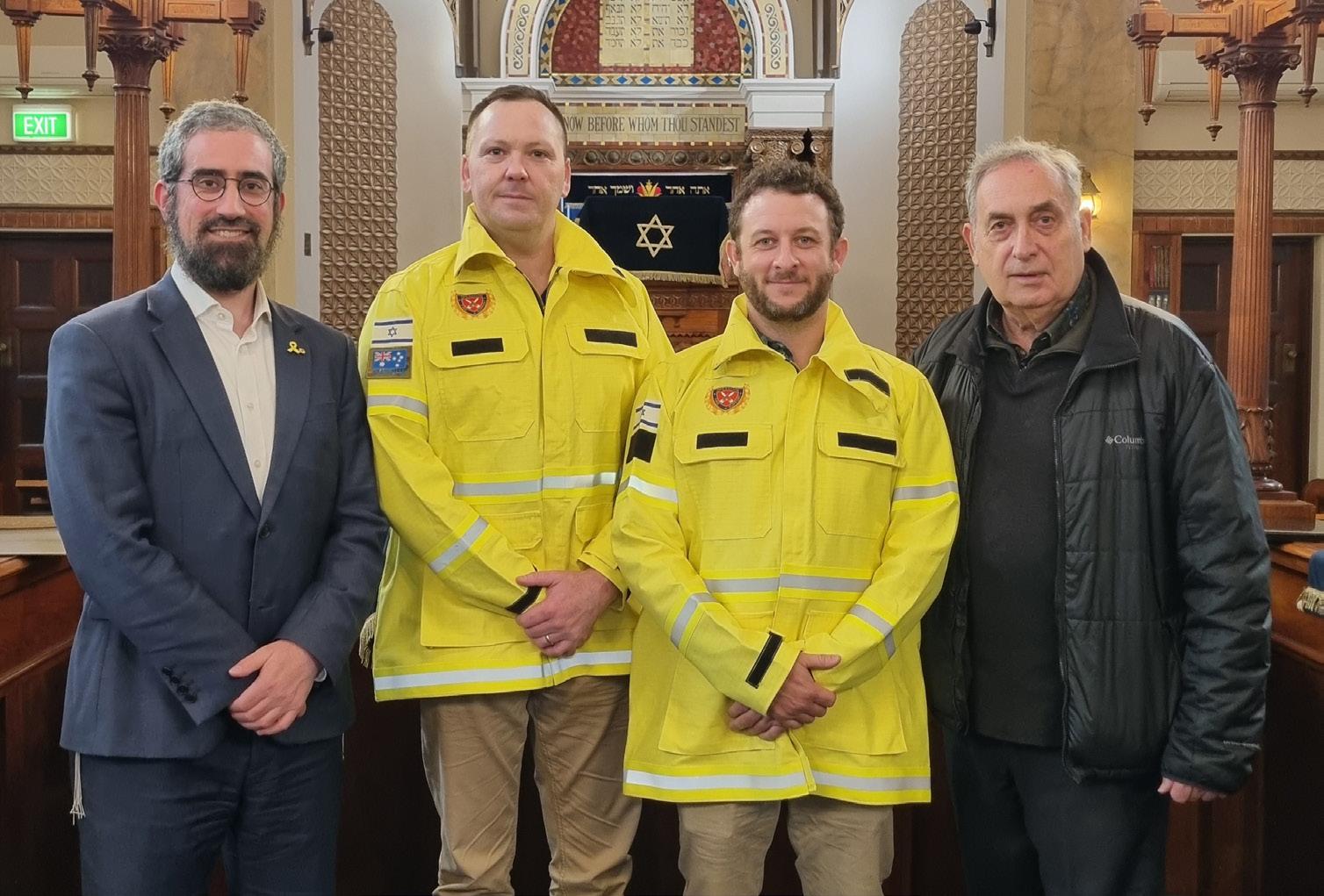
toll of fighting large-scale infernos but also the psychological weight of being on the front lines of a continuing war.
The fires in Israel have become a pressing concern, particularly during the summer months, when the dry heat exacerbates the risk. Fires started by Hamas and Hezbollah have, in some cases, burned thousands of hectares of land, destroying farmland, homes and wildlife habitat. With resources
stretched, local emergency services are often overwhelmed and that is where Operation Fire Support comes in. Through its various initiatives, it works to provide vital resources – such as specialised firefighting equipment, advanced training and critical funding to improve response times and safety –for Israeli firefighters. By raising awareness of the challenges these firefighters face, Operation Fire Support ensures that
Question
I had a young rabbi in my store trying to convince me to put up a mezuzah. We were broken into last week and he said the mezuzah will protect me from bad things. I think that's ridiculous. How can a scroll on my doorway stop robbers from coming in? And those people who always touch and kiss the mezuzah look like they are doing black magic or something. I believe in G-d, but I don’t believe in hocuspocus, mumbo-jumbo rituals.
Answer
Before addressing your question, I need to alert you to some thievery that I witnessed in your store. I didn't say anything at the time, because your staff didn't seem to care. But if you are concerned about being robbed, I think you need to know what is going on right under your nose.
There was a well-dressed guy in line ahead of me, who came to the cashier with an expensive item.
He was told the price loud and clear. But instead of paying like a normal person would, he performed an elaborate and weird ritual that made no sense whatsoever.

He took out his phone from his pocket, as if he was about to make a call. But no, he proceeded to wave his phone over a small machine sitting on the counter. I think he waved it three times north to south. Or perhaps twice north south and then once up and down.
He seemed to expect something to happen. Of course, nothing did. So,
more people understand the urgency of supporting this cause. The group organises fundraising, bringing muchneeded financial assistance to help maintain firefighting operations and provide continuous education and skill development to Israel’s emergency response teams.
The visit by Timothy and Danny is testament to the importance of grassroots efforts in supporting Israel’s ongoing security and resilience. They spoke passionately about the partnership between local communities and Israel’s first responders. They emphasised how important it is for people outside Israel to understand the complex, often dangerous situations these firefighters face, particularly in the context of national security threats.
As we face increasingly difficult times, it is crucial for the global Jewish community to show solidarity and support. Operation Fire Support exemplifies how focused, compassionate efforts can make a tangible difference, ensuring that Israel’s emergency services remain prepared and well-equipped to face any crisis, no matter the source.
You can learn more about Operation Fire Support’s commitment to Israel and donate, should you wish to, at: https:// www.operationfiresupport.org/israelprogram/
he gave a puzzled look to the cashier. I expected the cashier to yell at him, “Stop with the mumbo-jumbo and pay up!” But no, he seemed to play along with this farce.
The cashier told him to wave his phone on the upper surface of the little machine (as if that should make a difference). Well, he did and then the machine made a beeping noise. The
cashier said, “That’s better!” (what’s better?). Both gave a satisfied smile and then the customer walked out of the store with the merchandise.
I questioned the cashier how he could let the guy leave without paying. He responded: “He did pay. He tapped.” He then proceeded to try to sell me some wacky story that when the customer taps his phone, it charges his credit card. As long as he has the funds, the money is transferred directly into the store’s account.
Now, I saw with my own eyes, no money was exchanged, just a bunch of hocus-pocus rituals. It is absurd to think that waving a phone will cause money to appear in your bank account … unless you believe that there are forces we can’t see, and that we don’t always understand, impacting us in ways we can’t explain. Anyway, I thought you should know what happened. With stuff like that going on in your store, I strongly recommend you get a mezuzah.
Now that’s out of the way, what was your question?
Rabbi Aron Moss is the director of the Nefesh Centre in Bondi Beach. For more information, go to www.nefesh. org.au
JACK MARS AUJS
AUJS finds that its role has changed dramatically and permanently. We have gone from hosting bagel bars, Purim parties and the occasional political seminar to being an amplified voice in a national discussion on free speech, protest and social cohesion.
A constant state of chaos has consumed many campuses, a feeling of fretfulness or, at the very least, exhaustion is a fair way to describe the typical experience of our membership in recent months.
What can AUJS offer these students? Do we reassure them, telling them not to worry, we’re tackling the administrations head on? Well, partly, “yes”, but as the months have dragged on an even more important aspect of the Union – normality – has emerged.
Over the past year, AUJS NSW hosted a statewide Purim party, attended by more than 300 people, we held Rosh Hashanah drinks in Bondi, we’ve had campus games nights, study sessions with pastries, weekly stalls where Israeli tunes are played and free bagels are dispensed to students who need a pick-me-up between classes.
Despite being a Sydney-based leader, I know that these experiences have been shared across Australia and New Zealand. While in the background AUJS continues its delicate work advocating for our members, meeting with stakeholders and voicing our concerns to universities, we are now trying to reclaim a space on campus where the
politics, the war and the gratuitous opinions take a backseat to regular university life.
We haven’t been entirely successful, as it’s a tough balance to strike, but it’s important that we keep our campus life at the centre of our attention. We are privileged with the diversity of our membership. AUJS has attempted to cultivate an inclusive space, where one can be comfortable expressing their Jewish identity in any way they wish. With this comes a range of opinions, of reactions to recent events and different ideas on how AUJS should respond.
We try our best to remember the burden we have of representing Jewish students across Australia and New Zealand, and to avoid pretending that we know all their views.
So, instead, we try and stick to the fundamentals – that universities are places where there should be a free, nuanced and peaceful exchange of ideas and that you can choose to opt out of certain discussions. That being the case, there will still be plenty of room for you at our pub trivia table, at our bagel bars and at our games nights.
I’m excited for 2025. Despite the challenges of the last 12 months, I’ve witnessed an explosion of engagement in AUJS. Our leaders are focused, energised and have adapted to their new responsibilities successfully.
Our members are ready to re-emerge on campus with a revitalised social network and student life.
Jack Mars is the incoming national political officer for AUJS.
DR YVETTE ALT MILLER COURTESY: AISH.COM
Things to know while praying for rain:
Raindrops aren’t drop-shaped
They’re shaped more like hamburger buns. The speed at which rain falls flattens out drops, making them flatter on the bottom than the top.
The driest place on earth isn’t over the desert
The continent with the lowest rainfall is snowcovered Antarctica, which receives just 6.5 inches of rain or snow annually, making it the driest continent on earth.
Rain has a smell
It comes from the Earth: some plants and soildwelling bacteria excrete chemicals into the Earth that are released into the air when rain falls, moistening the ground in which these chemicals reside. The pleasant smell that results is called “petrichor” and is associated with the fresh feeling we experience after a rain shower.
Prayers for rain
Reflecting the understanding that rain comes from the Divine, Judaism contains blessings to say over rain-related phenomena. Upon hearing thunder, it’s customary to say, “Blessed are You, Lord our God, King of the Universe, for His strength and His power fill the universe.” Over lighting, we praise God “who makes the work of Creation”. After seeing a rainbow, we bless God as well.
Rain doesn’t start off as rain
Up in the clouds, rain most often starts off as snow. Clouds are made of freezing-cold water droplets and tiny crystals of ice. In most rains, this cold water adheres to ice, forming nascent drops that then fall out of the clouds. As they descend towards the relative warmth of the Earth’s surface, they melt and become rain.
In the Torah, rain has a special meaning
In the Torah, rain is a reward for following God’s laws: “If you follow My laws and are careful to keep My commandments, I will provide you with rains at the right time, so that the land will bear its crops and the trees of the field will provide fruit” (Leviticus 26:3). Conversely, the Torah warns, if the Jews fail

to follow Divine statues, God will make their “skies like iron” from which no rain will fall (26:18).
Rainbows signify a promise in Judaism
The Torah recounts how, many years after the creation of the world, it had become morally corrupt and God sent a flood to wipe out every living thing. Only Noah and his family survived. After the flood subsided, they turned to God, who promised He would never again destroy the world in this manner and chose the rainbow to be His special sign of this promise. “I have set My rainbow in the cloud and it shall be a sign of the covenant between Me and the earth” (Genesis 9:13). To this day, Jews recite a special blessing upon seeing a rainbow in commemoration of this promise.
Rain doesn’t always reach the Earth
“Phantom rain” occurs in extremely hot climates. Sheets of rain are visible in the sky, but high land temperatures cause the water to heat and evaporate before it ever reaches the ground.
Rain records
The most rainfall in one year ever recorded – 25.4 metres, or about 1,000 inches of rain –occurred in Cherrupanji, India. The most rain ever recorded in one 24-hour period occurred on the Indian Ocean island of La Reunion: during a cyclone in 1966, 71.9 inches (182.5 cm) of rain fell in one day.
Large raindrops fall faster
According to Britain’s Met Office, raindrops fall at an average speed of about 14 miles (or 22.5 kilometres) per hour. At that speed, a raindrop falling from a typical cloud height of 2,500 feet would take a little more than two minutes to reach the ground. Larger raindrops can reach speeds of up to 20 miles per hour (or 32 kilometres per hour), while tiny raindrops can take up to seven minutes to fall from 2,500 feet.
Rain is compared to blessings
In the Talmud, abundant rain is compared to blessings streaming down on us from Above, strengthening and nourishing us spiritually, just as rain sustains us physically. Rabbi Yehuda compared “the Day of the Rains” to the “Giving of the Torah”, noting that the Torah compares Torah to life-giving rain: “My teaching shall drop like rain” (Deuteronomy 32:2).
How many common words of five or more letters can you spell using the letters in the hive? Every answer must use the centre letter at least once. Letters may be reused in a word. At least one word will use all seven letters and have a direct Jewish connection.
Proper names and hyphenated words are not allowed. Score one point for each answer and three points for a Jewish related word that uses all seven letters.
Rating: 6 = Good; 10 = Excellent; 13 = Genius

Yoni Glatt has published more than 1,000 crossword puzzles worldwide, from the LA Times and Boston Globe to The Jerusalem Post. He has also published two Jewish puzzle books: "Kosher Crosswords" and the sequel "More Kosher Crosswords and Word Games".
ANSWERS PAGE 22
TED SASSON
Despite sharply different positions on the US presidential election, the communities are closer than they appear.
According to election-night polling, Vice president Kamala Harris won an impressive share of the Jewish American vote. The highest quality poll reported 71 per cent support for Harris and 26 per cent support for former president (and now president-elect) Donald J. Trump. Surveys of Israeli Jews, meanwhile, suggested an opposite set of preferences. Asked which candidate would better serve Israel’s interests, 13 per cent identified Harris, compared to 66 per cent who named Trump.
The political divide between Israeli Jews and American Jews has become huge, but what does it mean? Have Israeli Jews become immune to the threats to democracy that alarm many American Jews? Have American Jews become indifferent to the security needs of Israel? Before recriminations, it’s important to understand what the election meant for each side of the Jewish divide.
Israeli Jews appreciated Trump’s vocal support for Israeli government priorities during his first term, particularly recognising Jerusalem as Israel’s capital, scrapping the Iran nuclear deal and recognising the Golan Heights as part of sovereign Israel. Trump won over the Israeli right by his support for the eventual annexation of parts of the West Bank in the “Deal of the Century”, and ending the US practice of describing all settlements as illegal.
Yet, last December, several months into the war, Jewish Israelis preferred Biden over Trump by a significant margin. Biden visited Israel immediately following October 7, warned Iranians and Hezbollah against attacking (the famous “Don’t”) and rushed military aid as the war unfolded. He also repeatedly moved US aircraft carrier groups into the region and eventually engaged in joint defence manoeuvres with Israel for the first time in history.
Israelis’ preference for the Democratic president who came to their aid began eroding as Biden ramped up criticism of Israel’s conduct of the war, particularly concerning humanitarian aid for Gazans and the need for a deal to return the hostages.
But Jewish Israelis’ decisive turn toward Trump happened only after Biden stepped out of the race. Israelis noted Harris’ efforts to distinguish her record from Biden’s, by declaring that she “will not be silent about [the] humanitarian toll in Gaza”, and describing the scale of Palestinian suffering as “heartbreaking”. They also noticed her decision to absent herself during prime minister Benjamin Netanyahu’s speech to a joint session of Congress.
Israelis understandably know much less about the totality of Trump’s record

in office than they do about his policies toward Israel. Most know that Democrats – including most American Jews –view Trump as a threat to democracy. However, many likely regard such claims, which are a staple of Israeli political discourse, as an ordinary feature of partisan political debate. They have also heard about Trump’s willingness to associate with – and occasionally wink at – antisemites and Holocaust deniers. They do not believe, however, that he is an antisemite himself and they are far more distressed by antisemitism coming from the political left and often on display on US university campuses.
Most American Jews, on the other hand, have voted loyally for Democrats since Franklin D. Roosevelt. The Democratic party is their political tribe. They were huge supporters of Joe Biden in 2020, delivering 77 per cent of their votes to the veteran Democratic party leader in that election. The exception is the Orthodox part of the community, which tilts heavily toward Trump and other Republican candidates.
During the 2024 election, American Jews consistently identified democracy and abortion rights as their top policy concerns. Many also mentioned Israel and antisemitism as issues that shaped their voting preferences. But above all, they believed Trump threatened the integrity, professionalism and
independence of institutions that they rely upon. This includes everything from financial markets and schools to medicine, elections, science and foreign policy.
After taking the baton from Biden, Harris ran a campaign that sought to reassure Jewish voters of her support for Israel. She orchestrated a convention that featured many prominent Jewish speakers and hostage families, while denying a platform to pro-Palestinian speakers. She repeated often her support for Israel’s war aims, including the release of the hostages, and her commitment to continuing the Biden administration’s policies of massive military support (more than $22 billion since the start of the war). Doug Emhoff, Harris’s Jewish husband, led the Biden administration’s policy on antisemitism.
Harris’s positions on Israel, moreover, align with most American Jews, who support humanitarian aid for Gazan civilians, a deal to return the hostages and a diplomatic initiative toward a two-state solution. Many Israeli Jews disagree with these policy preferences, but most American Jews do not believe they express indifference toward Israel or a lack of support.
The two largest Jewish communities in the world have different political cultures. Israeli Jews are, on the whole, more conservative and religious. A year
into a brutal war, they seek a superpower ally they believe will provide unqualified support. American Jews, in contrast, tend to be more liberal and secular, and prioritise a wide variety of issues, alongside support for Israel.
These differences make the Israeldiaspora relationship especially challenging.
The polling however can distort and exaggerate the differences. The view of the two communities turning away from one another can be misleading. In some respects, the opposite is true.
Israelis increasingly view the US-Israel alliance as indispensable. American Jews feel more connected to Israel than in decades, according to survey data.
Recognising these nuances can attenuate, if only a bit, the stark differences that emerged in 2024 between the two great centres of Jewish life. Israeli and American Jews live in vastly different contexts and political cultures.
Understanding what the election meant for each can go a long way to reducing feelings of alienation.
Ted Sasson is the Ruderman Family Foundation Scholar in Residence and Senior Researcher at the US Institute for National Security Studies. He is also a professor and director of Jewish Studies at Middlebury College.
Friday, Nov 22, 2024 8:00 PM
Shabbat ends, Nov 23, 2024 9:04 PM
Friday, Nov 29, 2024 8:07 PM
Shabbat ends, Nov 30, 2024 9:12 PM
Friday, Dec 6, 2024 8:13 PM
Shabbat ends, Dec 7, 2024 9:19 PM
Friday, Dec 13, 2024 8:19 PM
Shabbat ends, Dec 14, 2024 9:25 PM
Friday, Dec 20, 2024 8:23 PM
Shabbat ends, Dec 21, 2024 9:29 PM
Melbourne Jewish Report Disclaimer:
Except where expressly stated otherwise, content in The Melbourne Jewish Report is provided as general informations only. The articles in this paper have been contributed by a third party. The opinions, facts and any media content here are presented solely by the author, and The Jewish Report assumes no responsibility for them. It is not intended as advice and must not be relied upon as such. You should make your own inquiries and take independent advice tailored to your specific circumstances prior to making any decisions. We do not make any representation or warranty that any material in the papers will be reliable, accurate or complete, nor do we accept any responsibility arising in any way from errors or omissions. We will not be liable for loss resulting from any action or decision by you in reliance on the material in the papers. By reading the papers, you acknowledge that we are not responsible for, and accept no liability in relation to, any reader’s use of, access to or conduct in connection with the papers in any circumstance. Photographs submitted by individuals or organisations are assumed to be their property and are therefore not otherwise credited. All articles in this paper have received the expressed consent of the author to publish in this paper.
The Jewish Report; ISSN 2204-4639
Publisher: The Jewish Report Pty Ltd (ACN 167302981)
Distributor: TJR Distribution Pty Ltd ACN 165158029
Comments or suggestions to: editor@thejewishreport.com.au
Article submissions to: www.thejewishreport.com.au/article-submission-guidelines
Advertising: editor@thejewishreport.com.au
Website: www.thejewishreport.com.au
Printer: Spotpress Pty Ltd










SAM GREEN
The acclaimed Melbourne singer/ songwriter is set to delight audiences anew with his upcoming concert at Caulfield Town Hall on December 1st.
Known for his soulful melodies and heartfelt lyrics, Sam Green's music resonates with those familiar with his style, along with enthusiastic newcomers.
He has been a mainstay in Melbourne’s music scene for more than four decades … beginning his musical journey at a tender age.
Since then, he has honed his craft, so that his repertoire spans genres and speaks of the human experience.
He can be introspective and forward thinking. His songs touch on universal themes of love, loss and hope.
In short, Sam is a storyteller.
His latest albums, "Heaven Knows We Care" and "Bird Watching in Time” showcase his ability to evolve and innovate, incorporating fresh sounds.
Sam will take to the stage alongside his long-time collaborator and friend Manny Golberg.
To book for the concert upstairs at the Town Hall at 3pm, go to www.samgreen. com
Tickets to the show are $25, which includes a CD covering 115 of Sam’s songs, to be given out at the door.


Upstairs at Caulfield Town Hall on Sunday, December 1st at 3pm
Buy tickets online for $25 including a CD containing 115 songs given out at the door
To book, go to www.samgreen.com and scroll down the page
Jewish answer: MENUCHA. Here is a list of some common words (“yes”, we know there are more words in the dictionary that can work, but these words are the most common): HENCHMAN, HENCHMEN, UNHUMAN, CHACHAM, ENHANCE, CHANCE, HUMANE, CACHE, HENCE, HENNA, HUMAN, HUNCH and MUNCH..
Questions/comments, please email Yoni at koshercrosswords@gmail.com
Method:
Peel and slice thinly the granny smith apples.
Ingredients: 4-5 Granny Smith apples
5 eggs
1/2 cup vegetable oil
1 cup plain flour
1 cup white sugar (which can be adjusted, if you want less sweetness)
2 teaspoons baking powder
1/2 cup orange juice
Cinnamon sugar
Place them in two 9 x 9 inch baking dishes, or one 9 x 13 inch baking dish. Mix all other ingredients in a bowl. When combined, pour over apples in the baking dish.
Sprinkle with cinnamon sugar.
Bake at 180 degrees Celsius for 50-55 minutes until the edges are golden brown.

From the opening words “oh, crap”, uttered by Sister Mary Lazarus, as played by the indomitable Rhonda Burchmore, we know Sister Act will be deliciously irreverent.
In fact, it is a buoyant hoot, with some extraordinary musical performances and no shortage of colour and glitter. The show looks and sounds fabulous.
What makes it so good is the spirit in which it takes shape.
There is the natural confidence about the talent and their mode of delivery, which is chock full of expression.
It often includes perfectly timed pregnant pauses before delivery of cheesy one-liners that go down a treat.
Vocally, time and again, the solos hit the mark, while the full voiced chorus numbers are rousing.
Much credit here not only to goes to the star of the show, Casey Donovan et al, but to Alan Menkin and Glenn Slater.
They were responsible for the music and lyrics, respectively, with a book by Cheri and Bill Steinkellner, and additional material from Douglas Carter Beane.
It is based on the 1992 Whoopi Goldberg hit movie of the same name, which featured Maggie Smith and Harvey Keitel.
Sister Act, the musical, premiered in Pasadena in 2006, before making its West End debut in 2009 and opening on Broadway two years after that.

It concerns the fate and misfortune of Deloris Van Cartier (Donovan).
She is a wannabe singing star being held back by her no-good, married boyfriend Curtis Jackson (James Bryers).
He is a gangster and she witnesses him eliminating one of his henchmen for being a stool pigeon.
Suddenly, the showy entertainer’s life is in danger.
She seeks protection from the Philadelphia police, including desk chief and ex-schoolmate Eddie Souther (Raphael Wong), who had a crush on her.
Deloris is quickly ushered into the safe keeping of the Mother Superior (Genevieve Lemon) of an order of nuns not so lovingly called the Ladies of Perpetual Sorrow.
The pair immediately locks horns on the rules of engagement.
With support for the order dwindling, the convent faces imminent closure. But all that changes after Deloris (in disguise as Sister Mary Clarence) takes charge of the previously out of tune choir.
Still, in so doing and in thereby lifting the profile of the church, she faces exposure to the nefarious Curtis Jackson and his cronies. As previously suggested, Casey Donovan is dynamic and divine as Deloris. She struts about the stage as if she owns it in a breathtaking display of artistry and excellence. Her golden tonsils are astounding.
As Mother Superior, Genevieve Lemon is great at enacting indignation at the force of nature that has upended the strict disciplinary ethos by which the nuns live.
Huge crowd favourite Rhonda Burchmore has an enviable presence
as the husky Sister Lazarus. I can’t speak more highly of the work of Sophie Montague as Sister Mary Robert and Bianca Bruce as Sister Mary Patrick. Both shine and deliver big time whenever they are called upon to do so. What voices they have!
Raphael Wang’s swagger, awkwardness and goofy charm as policeman Souther is a sheer delight.
James Bryers has cartoon villain down pat as Curtis Jackson.
His gang members – TJ (James Bell), Joey (Tom Struik) and Pablo (Jordan Angelides) – steal the show with a superbly rendered tune early in Act II.
They and the whole ensemble do a wonderful job bringing to life a gloriously light and lively musical.
They are, of course, aided by the mastery of the orchestra, under musical director Daniel Griffin and sublime choreography from Alistair David.
Morgan Large deserves massive plaudits for exemplary set and costume design. In short, each scene is a statement of intent, often bold and brazen, with a rich and redolent tapestry.
Lighting design by Tim Mitchell and sound design by Tom Marshall add flourish and impact.
What an outstanding, faultless and joyous opening night Sister Act had.
This is a thoroughly enjoyable, uplifting production that puts a smile on your face. It is playing at Regent Theatre until 26th January, 2025.
Quite some undertaking … to turn the iconic novel My Brilliant Career, about a young girl/woman who doesn’t fit in, who charts her own path in life, into a musical.
She is a strong-willed feminist, ahead of her time.
She is someone with a vivid imagination who doesn’t know exactly what she wants, but what she does know is that she not willing to simply settle.
In short, she is trying to find herself.
When we first meet her in the late 19th century living on a farm, she is 15 and not at all in sync with her mother and father.
As the musical evolves, she turns 17 and then 19.
The task of adapting the work fell to Sheridan Harbridge (book) and Dean Bryant (book and lyrics), with music by Matthew Frank. They have done a marvellous job with the material.
Bryant’s reason for turning the classic novel by Miles Franklin into a musical was that he felt the story would be enlarged by doing so.
So, we have pop, rock, folk and music of the day, a heady combination.

MTC’s offering, fronted by a superb, multitalented cast of 10, who can both act and sing with aplomb, is an unbridled celebration.
It is an imaginative retelling of Sybylla Melvyn’s story, someone who thinks big and refuses to accept the status quo.
Kala Gare is a bundle of pent-up energy and delight as the incomparable, self-serving Sybylla, who refuses to be tamed.
She bounds about the stage with reckless abandon.
Her broad, cheeky grin has an alluring authenticity about it.
Her vocals soar. Her stagecraft is exemplary – potent and invigorating, as she transforms into a teenager cum young woman finding her way.
We see her effortlessly channelling a range of emotions, from anger to frustration, playfulness to poignancy.
Raj Labade plays Sybylla’s love-struck suitor Harry, who has never met anyone anything like Sybylla.
Harry recognises that he will have to have the patience of Job to ride the inevitable highs and lows, but his heart tells him it is a risk worth taking.
Labade transitions from arrogant to intrigued to doting.
In fact, as the story unfolds, many in the cast, include Labade, fill multiple roles and the strong chemistry between them is palpable.
Marg Horwell’s set and costume design sparkle. A neat, centred rural setting replete with performers on their musical instruments gives way to several enticing surprises.
Choreography, lighting and sound elevate the spectacle.
Aided by the company’s NEXT STAGE Writers’ Program, MTC’s My Brilliant Career has evolved beautifully since its first iteration five years ago.
There is a warmth and wonder about director Anne-Louise Sarks’ production that I found intoxicating.
Two hours 20 minutes, including interval, is on at Southbank Theatre, The Sumner until 18th December, 2024.
For more of Alex First’s reviews, go to https://www.itellyouwhatithink.com
With its rich and diverse program of movies, the Jewish International Film Festival continues to excite and entice.
A recent addition is the Australian premiere of a work that investigates the corruption trial of Israeli Prime Minister Benjamin Netanyahu.
He is facing charges of breach of trust, bribery and fraud.
Produced by Oscar-winner Alex Gibney, the documentary presents exclusive leaked footage from police interrogations, along with interviews with key Israeli figures.
The Bibi Files delivers a revelatory perspective on Netanyahu’s legal battles and their impact on Israeli society and politics.
It joins a festival line-up that includes more than 40 feature length films, two television series and a special short film showcase.
Among the other movies featured is the highly anticipated drama The Brutalist.
Starring Adrien Brody and Guy Pearce, the film won’t get a more general release until early next year.
It concerns visionary architect László Toth and his wife Erzsébet, who flee post-war Europe in 1947 to rebuild their legacy.
The closing night film at this year’s Festival is The Performance.
Jeremy Piven plays Harold May, a Jewish-American tap dancer lured into performing for Adolf Hitler in Berlin.
The tense, period drama has been adapted from an Arthur Miller short story and examines fame, personal integrity and artistic survival.
JIFF finishes in Melbourne on 4th December and in Sydney a day later.
To find out more and to book tickets, go to https://www.jiff.com.au

